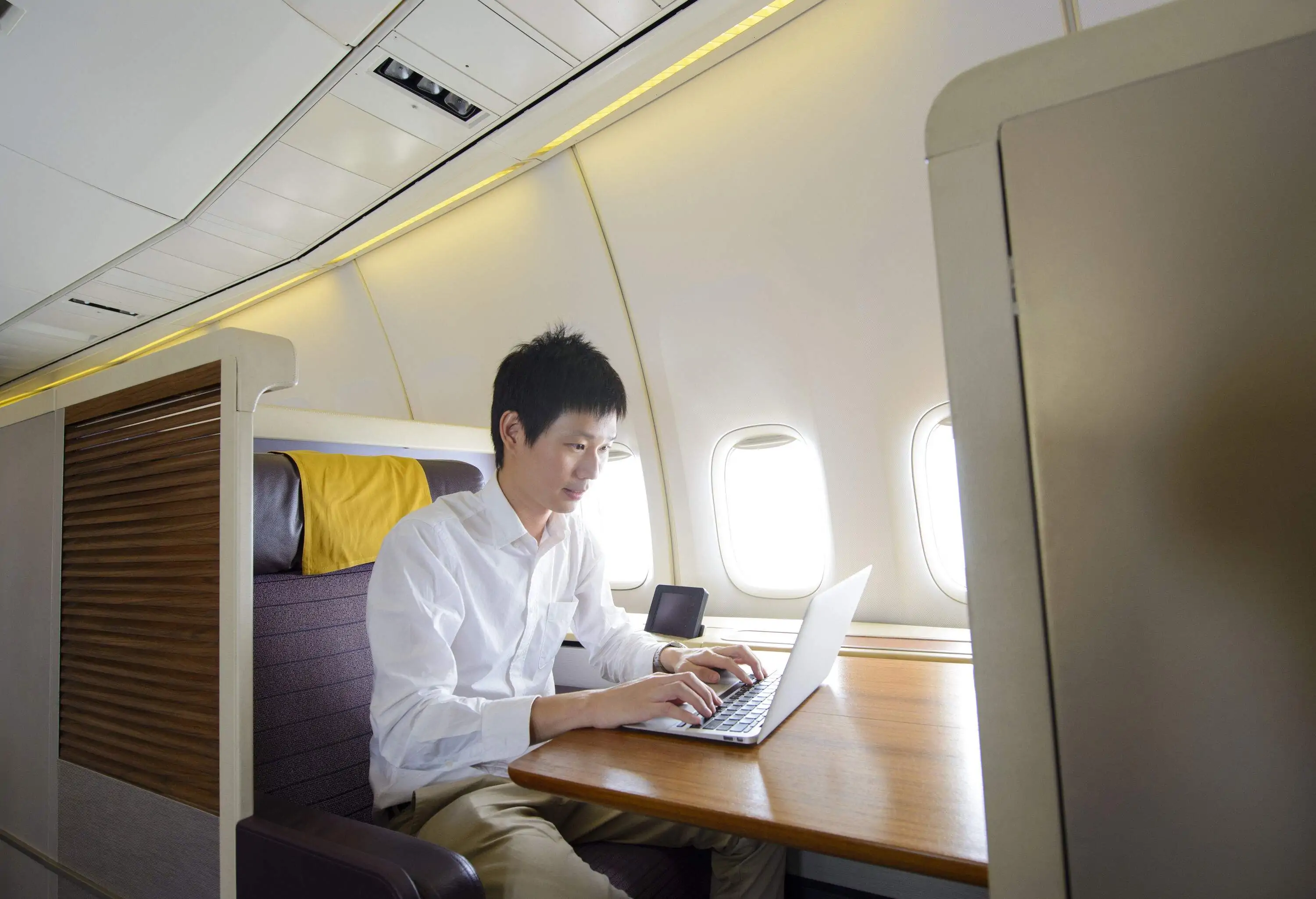When it comes to going on vacation, we all have our own idea of the perfect getaway. Yet, whether we are sunbathing or sightseeing, we probably all have one thing in common when we travel: we spend more than we actually need to. Making simple changes to the way you travel could be the difference between extra time in paradise and an early return to your desk.
To help you out, we have compiled a list of ways you spend too much for your travels and some tips on how to save some serious money.
1. You always travel on a Saturday
Traveling over a weekend might be more convenient, but it can be a lot more expensive. Whether you’re planning a short getaway or a long vacation, you can make huge savings if you fly mid-week. Next time you’re looking at flights, check how much you could save by traveling during the week instead of on a Friday or Saturday.
2. You use your everyday credit card when traveling overseas
It’s sensible to take a credit card on vacation with you. They’re an easy and safe way to carry money and they can be very useful in an emergency. But taking your everyday credit card might not be the best option. Most credit cards impose extra fees and charges for foreign transactions, which means they end up being pretty expensive to use abroad. To avoid getting stung by foreign transaction fees, it’s a good idea to shop around for a credit card that offers a good deal on foreign spending, or consider getting an overseas spending card like Revolut. Don’t forget to let your bank know you’re going abroad, as they might be able to offer you some good deals on exchange rates and travel insurance.
3. You exchange currency at the airport
It’s always a good idea to have some cash on you when you travel, particularly if you plan on paying for taxis and refreshments or if you will be tipping. However, you may not get the best exchange rate if you wait until getting to the airport before changing your currency. To save money, shop around for the best exchange rates and get your cash before you travel. You can now exchange currency at select supermarkets and department stores, so it is worth checking where you can get the best deal. Make sure you also find out if your own bank offers preferential rates for its own customers.
4. You only look at direct flights
Flying direct is definitely the fastest and most convenient way to travel, but it can cost you a lot more. If you’re looking for a cheap getaway, you could make huge savings by opting for a layover. Instead of seeing it as an extra hassle, make the most of your time by having a look around a city you would never otherwise have visited, or even just spend a bit of the cash you have saved on some guilt-free duty-free.
5. You eat out for every meal
Eating out on vacation can cost a small fortune, particularly if you’re feeding the whole family. Instead of paying for costly meals out three times a day, try opting for accommodation that includes breakfast in the price. Making the most of the breakfast buffet can keep you feeling full for most of the day. Instead of paying for snacks in pricey cafés and coffee shops, find a local supermarket and stock up on snacks and drinks to keep you going. If you do enjoy dining out, try to eat at lunchtime rather than in the evening, since lunchtime menus are almost always cheaper.
6. You buy individual train and bus tickets
Visiting a city with good public transport is great for sightseeing on a budget, but most of us don’t think to ask the bus driver or train guard how we could save even more. Rather than forking out on individual bus and train tickets, have a look to see what offers they have on weekly passes or citywide tickets. This could help you save money and avoid the hassle of buying a new ticket every time you want to travel. Also, make sure you ask about student, senior, veteran or disabled discounts if any of these apply to you, as you might be eligible to save even more.
7. You travel during the high season
Yes, we know, it’s really tempting to book a vacation during the summer. The weather is lovely and it feels like everyone else is jetting off somewhere exotic. However, if you’re not tied by school vacations, you could save a ton by traveling off-peak. Shoulder season is a great time to travel as it’s almost always cheaper and it’s a lot quieter than going away over the high season months. Plus, you can smugly skip off to enjoy some well-deserved sunshine abroad while all of your colleagues are digging out their winter coats and turning on their heat.
8. You don’t pay attention to travel insurance
Often times travel insurance doesn’t garner much thought. Either you blindly purchase because you assume it’s necessary (perhaps as an add-on when booking a trip) or you fail to think of it at all.
It’s important to keep in mind that travel insurance not only covers health concerns. It also protects against a plethora of travel mishaps from lost luggage to trip cancellation, so it can be your financial friend. However, before you start spending on insurance, do your homework to know what you need. Likely, your current health insurance plan will cover you when you’re out of the country, but it’s important to make sure, especially if you are planning anything adventurous. You can consider purchasing secondary insurance to supplement your existing policy if your existing insurance doesn’t give you all the coverage you need.
When considering how much coverage you have, don’t forget about credit cards. Many offer free travel insurance, but you should check with the individual companies to learn more about the coverage provided.
If you decide travel insurance is for you and you take a number of trips per year or are often traveling for business (business travelers should check with their employer before assuming they provide coverage — oftentimes they may not), an annual policy could actually work out to be cheaper. You will also save the hassle of looking into the need for a new policy each time you book a trip.
9. You buy food at the airport or on the plane
Food at the airport can be really expensive, but while you can’t take any liquids over 3.4 ounces through customs, you can take food with you. Check out our tasty pre-flight and in-flight meal ideas that you can prepare at home for a fraction of the cost of airline prices.
10. You don’t let your phone company know you’re going abroad
Having to come home after a perfect trip can be depressing enough without having to fork out for a huge, unexpected phone bill. This can be easily avoided by contacting your phone company to let them know you’re going abroad. It’s easy to forget when you have so much else to think about before going away, but it can actually save you a lot of money. Some providers offer free solutions, while others offer a daily or monthly fee to allow you to use your phone to make calls, send texts and use data without running up a huge bill. Just remember to cancel it when you’re back.
11. You always buy mini toiletries
When it comes to shopping for vacation essentials, most of us stock up on mini toiletries. But travel-size lotions and potions can be expensive. Instead, get some small empty bottles and fill them up from your everyday toiletries, so you can take your favorite shampoo and shower gel with you for a fraction of the price. Also, don’t forget that most hotels provide complimentary toiletries, so make the most of them.
12. You spend money on maps, GPS and travel guides
Buying travel guides and maps when you’re on vacation can seem like a sensible idea, but it’s often really expensive. Save money by searching for information online and printing out maps and guides to take with you. You can also download free travel and navigation apps for your smartphone that come with pre-loaded maps, route planning and travel tips. Just remember to download the apps before your trip so you don’t use up your data abroad.
13. You buy fresh bottles of sunscreen and bug spray every time you travel somewhere warm
If you’re lucky enough to be jetting off somewhere sunny or warm, you will definitely need to pack some sunscreen and bug spray. Rather than automatically forking out for new bottles, take the time to check your existing supply. Sunscreen is meant to last up to three years, and your bottle will have an expiration date stamped on it to guide you. The active ingredient in most insect repellents really doesn’t lose its potency, but, over time, the spray itself may become less effective. Many brands will include an expiration date, but, if your repellent isn’t labeled, experts suggest you spray a little into the air and let your noise do the work. If it smells like bug spray to you, it will to the insects too. To make sure your sunscreen and insect repellent last, store them in a cool, dark place, and avoid leaving them in direct sunlight when possible.
14. You rent a car at the airport
From extortionate insurance to overpaying for GPS and children’s car seats, renting a car can cost you a small fortune. One easy way to save is to avoid picking up your rental car at airport locations. Prices at airport locations are often higher than other pick-up locations, and come with fees. You can often find nearby locations and the short commute can save you a bundle. But, if the convenience factor of grabbing your car at the airport is too appealing to pass up, there are other ways you can save. Skip unnecessary insurance upgrades. Most of the time your own car insurance or credit card will cover basic insurance needs. Also, always go for the compact and hold your ground. Unless the extra space is non-negotiable, a compact will likely do the trick. Plus, because most rental car companies stock more mid-sized than compact, chances are you’ll be given an upgrade at no additional fee.
When it comes to renting a car, just like booking a flight, it’s smart to do your research. Compare prices to find the best deal, and consider looking for packaged flight + rental car bundled deals. Also, make sure you also take your child car seats and GPS (or map app) with you to avoid paying out for extras.
How do you save when you travel? Share your tricks with us in the comments.
Feature image: istockphoto.com/Jacob Ammentorp Lund






